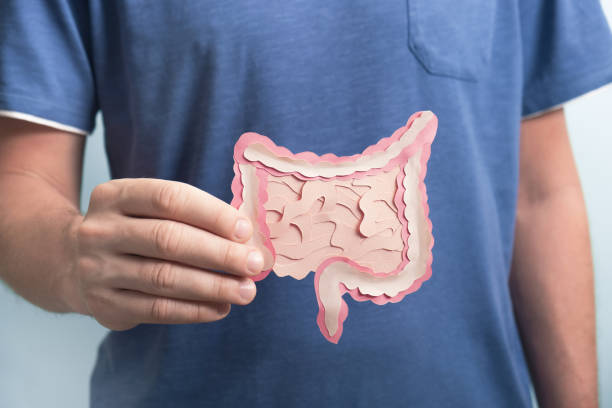Your gut is often called the “second brain” of the body because it does much more than just digest food. It helps with many important functions like immune support, mental clarity, and overall health. A strong, balanced gut can process food properly, absorb nutrients, and prevent harmful bacteria from causing issues.
However, when the gut is not working well or becomes imbalanced, it can lead to problems throughout the body. You might notice fatigue, mood swings, frequent illnesses, or digestive issues like bloating or constipation. These are signs that your gut may need attention and support.
Recognizing these signs early is important. A healthy gut can help improve your energy, mood, and immunity. Understanding what’s going wrong is the first step to fixing it. Once you know the signs of an unhealthy gut, you can take steps to bring your body back into balance and support your long-term health.
In this article, we will dive deep into the top 10 signs of an unhealthy gut, what they mean, and how you can address them effectively.
Why Gut Health Matters
Before we explore the signs, it’s important to grasp why gut health is so vital. Your digestive system houses trillions of microorganisms—bacteria, viruses, fungi—that make up your gut microbiome. This community helps:

Break down food and absorb nutrients
Protect against harmful pathogens
Regulate metabolism and hormones
Communicate with your brain to influence mood and cognition
Support immune function
When the gut microbiome is disrupted (a state called dysbiosis), or the lining of your intestines is damaged, it can trigger a wide range of symptoms and even chronic diseases.
Top 10 Signs of an Unhealthy Gut
Digestive Issues: Bloating, Gas, Constipation, and Diarrhea

One of the most noticeable signs that something may be wrong with your gut is ongoing digestive discomfort. This can include bloating, gas, constipation, diarrhea, or heartburn that doesn’t go away. These symptoms often point to an imbalance in your gut bacteria or issues with how your digestive system is working.
If you frequently experience these problems, it’s important not to ignore them. Your digestive system is closely linked to other parts of your body, including your brain and immune system. Constant discomfort may be your body’s way of signaling that your gut health needs attention and support.
Recognizing this as one of the 10 signs of an unhealthy gut can help you take action early. Addressing the root cause of your symptoms can lead to better digestion, improved energy, and better overall health. A healthy gut often means a healthier you.
This can include:
Bloating: A swollen, uncomfortable feeling in your abdomen
Excessive Gas: Frequent belching or flatulence
Constipation: Difficulty passing stools or infrequent bowel movements
Diarrhea: Loose or watery stools that occur regularly
These symptoms often signal an imbalance in gut bacteria, food intolerances, or inflammation in the digestive tract.
Why this happens: When your gut flora is imbalanced, harmful bacteria can overgrow, producing excess gas or toxins that irritate your intestines. Poor digestion due to insufficient enzymes or damaged lining can also impair stool formation and movement.
Unintentional Weight Changes
If you are gaining or losing weight suddenly without changing your diet or physical activity, your gut health might be involved. An unhealthy gut can affect how your body processes food, stores fat, and absorbs nutrients, leading to unexpected weight changes.
Weight gain may be linked to insulin resistance or increased cravings for sugar, both of which can be signs of poor gut health. On the other hand, weight loss could result from nutrient malabsorption caused by imbalances in your digestive system. These changes are your body’s way of telling you something isn’t right.
Unexplained weight changes are often included in the 10 signs of an unhealthy gut. Paying attention to these shifts can help you spot a gut issue early. Taking steps to improve gut balance may support healthy weight management and improve your overall well-being.
Weight gain: An unhealthy gut can lead to increased fat storage, insulin resistance, and cravings for unhealthy foods, all of which contribute to weight gain.
Weight loss: Conversely, gut issues can impair nutrient absorption, leaving you malnourished and losing weight unintentionally.
Why this happens: Gut bacteria affect how many calories and nutrients you extract from food. Dysbiosis can alter hormones related to hunger and fat storage, like leptin and insulin.
Constant Fatigue and Sleep Disturbances

Feeling tired all the time, even after getting enough rest, can be a warning sign that something is not right with your gut health. Your gut plays a big role in absorbing nutrients that give your body energy. If your gut isn’t working properly, your body might not get the fuel it needs, which can make you feel tired all day.
Many people think poor sleep or stress is to blame for their low energy, but often it’s linked to gut issues. A weak gut can affect your immune system and even your mood, making you feel drained or foggy without a clear reason.
This constant tiredness is one of the 10 signs of an unhealthy gut. If you’re regularly exhausted without a clear cause, it may be time to pay attention to your gut health and consider making changes to your diet and lifestyle.
How the gut affects energy: Your gut produces and regulates key neurotransmitters like serotonin, which influence mood and sleep cycles. An unhealthy gut can lead to poor sleep quality, insomnia, or daytime fatigue.
Why this happens: Gut inflammation and bacterial imbalances can cause systemic inflammation, leading to feelings of exhaustion. Additionally, poor absorption of vitamins and minerals like B12 and magnesium reduces energy production.
Skin Problems: Acne, Eczema, and Rosacea
Your skin often shows what’s happening inside your body, especially in your gut. If your gut is not healthy, it can lead to inflammation that shows up on your skin. Many people experience breakouts, dryness, or irritation that may actually be connected to gut problems.
Conditions like acne, eczema, psoriasis, and rosacea are not just skin issues—they can be signs of deeper imbalances. When your gut has too much bad bacteria or not enough good bacteria, it can affect your body’s ability to fight inflammation and clear toxins, which may lead to skin flare-ups.
Skin troubles are one of the 10 signs of an unhealthy gut. If you notice ongoing skin problems that don’t improve with usual treatments, it could be time to focus on healing your gut. Improving your gut health might also lead to clearer, healthier skin over time.
The gut-skin connection: An unhealthy gut can cause increased intestinal permeability (often called leaky gut), allowing toxins and undigested food particles into your bloodstream. This triggers systemic inflammation that often shows up on your skin.
Why this happens: Inflammation from the gut can activate immune responses and disrupt your skin’s natural barrier, worsening existing conditions or creating new skin issues.

Food Intolerances and Allergies
If certain foods suddenly make you feel unwell—causing bloating, nausea, headaches, or skin reactions—it could indicate gut dysfunction.
Food intolerances vs. allergies: Intolerances are usually caused by difficulty digesting certain foods (like lactose or gluten) and are often linked to poor gut health. Allergies involve immune responses but can also be aggravated by a leaky gut.
Why this happens: When your gut lining is damaged, your immune system can overreact to harmless food proteins, leading to inflammation and intolerance symptoms.
Autoimmune Conditions
Your gut plays an important role in keeping your immune system balanced. A large part of your immune system is actually found in your gut, so when your gut is not healthy, it can lead to problems in how your body defends itself. This imbalance can make your immune system react in harmful ways.
Many autoimmune diseases—such as rheumatoid arthritis, lupus, and multiple sclerosis—have been linked to poor gut health. In these cases, the body starts attacking its own tissues, often due to gut-related inflammation and a weakened barrier between the gut and the bloodstream.
If you’re dealing with autoimmune symptoms, this could be one of the 10 signs of an unhealthy gut. Paying attention to your gut and taking steps to improve its condition may help manage or reduce autoimmune flare-ups and support overall immune health.
The gut-immune connection: A compromised gut lining can lead to chronic inflammation and immune system dysregulation, potentially triggering autoimmune attacks on the body’s own tissues.
Why this happens: Gut dysbiosis causes the immune system to become hyperactive or confused, often attacking the body in response to persistent inflammation.
Persistent Bad Breath or Coated Tongue

Bad breath is usually blamed on poor brushing or dental issues, but sometimes the real cause is deeper. An unhealthy gut can affect the way your body breaks down food and manages bacteria, which may lead to unpleasant breath even if your mouth is clean.
A white-coated tongue or a constant sour or foul taste in the mouth might also be signs of gut imbalance. When harmful bacteria grow too much in the gut, it can produce gases and toxins that travel up the digestive tract, affecting your breath and taste.
These symptoms may be among the 10 signs of an unhealthy gut. If you maintain good oral hygiene but still have bad breath or notice tongue changes, it might be time to look at your gut health. Supporting a balanced gut could help improve both your digestion and your breath.
Why this happens: Excessive harmful bacteria in the gut can produce sulfur compounds and toxins absorbed into your bloodstream, eventually exhaled through your breath.
Mood Disorders: Anxiety and Depression
Your gut and brain are connected through a system called the gut-brain axis. This two-way communication allows them to send signals to each other. When your gut is not healthy, it can disrupt this connection and lead to problems with your mood and mental clarity.
Poor gut health has been linked to issues like anxiety, depression, and trouble focusing. This happens because the gut produces many of the same chemicals, like serotonin, that help regulate your mood. If your gut is out of balance, these signals can get disrupted, affecting how you feel and think.
Mood swings and mental fog are often part of the 10 signs of an unhealthy gut. If you’re feeling down or anxious without a clear reason, your gut could be part of the problem. Taking care of your gut may help improve your mental and emotional well-being.
Gut influence on mood: About 90% of the body’s serotonin (the “feel-good” neurotransmitter) is produced in the gut. Gut dysbiosis can decrease serotonin levels, contributing to mood disorders.
Why this happens: Inflammation from gut issues can affect brain function, neurotransmitter production, and stress hormone regulation, leading to anxiety and depression.
Sugar and Processed Food Cravings

Craving sugar and processed foods often seems like a simple habit, but it can be a sign that your gut is out of balance. When harmful bacteria in the gut grow too much, they can send signals to the brain that increase your desire for sugary foods.
These cravings feed the bad bacteria, allowing them to grow even more and push out the good bacteria. This creates a cycle where you feel the need for more unhealthy food, which continues to weaken your gut health over time.
This pattern is one of the 10 signs of an unhealthy gut. If you constantly crave sweets or processed snacks, it may be more than just willpower. Balancing your gut by eating fiber-rich foods and reducing sugar can help reduce cravings and support better overall health.
Why this happens: Certain harmful bacteria and yeast thrive on sugar, and they can send signals to your brain to crave more of their preferred foods, perpetuating a cycle of poor gut health.
How to Heal Your Gut
Recognizing these signs is important, but what’s more crucial is taking action to restore your gut health. Here are several effective strategies:
Improve Your Diet: Start by choosing natural, whole foods instead of processed ones. Eat more fiber from fresh fruits, vegetables, and legumes to help your gut bacteria thrive. Limit foods high in sugar and avoid artificial sweeteners. If you suspect sensitivity, try removing gluten or dairy to see if symptoms improve.
Add Probiotics and Prebiotics: Probiotics are helpful bacteria that support digestion. You can take them through supplements or fermented foods. Prebiotics are special plant fibers that feed good bacteria, found in foods like garlic, onions, and asparagus.
Reduce Stress Levels: High stress can disrupt gut health. Practices like yoga, meditation, and deep breathing may calm the mind and ease gut symptoms.
Get Enough Sleep: Lack of sleep affects digestion and immune function. Try to get 7 to 9 hours of restful sleep each night to support gut repair.
Avoid Unnecessary Antibiotics: Only take antibiotics when truly needed, as they wipe out both good and bad bacteria. Always use them under a doctor’s care.
Drink More Water: Staying hydrated helps move food through the digestive tract and flush out harmful substances.
Seek Medical Testing if Needed: If gut-related symptoms continue, it may be time to see a doctor. Tests for SIBO, parasites, or food intolerances may reveal hidden causes of the 10 signs of an unhealthy gut.
Conclusion

In summary, recognizing the 10 signs of an unhealthy gut is essential for maintaining overall health and wellbeing. From digestive discomfort and unexpected weight changes to mood disorders and skin issues, these symptoms often signal that your gut microbiome is out of balance. Addressing these signs early through diet, lifestyle changes, and proper medical guidance can prevent more serious health complications down the road.
Your gut is central not only to digestion but also to immune function, mental health, and energy levels. By listening to your body and taking proactive steps to heal your gut, you can restore harmony within your digestive system and enhance your quality of life.
If you notice any of the 10 signs of an unhealthy gut, consider evaluating your habits and seeking professional advice. Prioritizing gut health is a powerful investment in your long-term vitality and happiness.
FAQs
Q.1 What causes an unhealthy gut ?
An unhealthy gut is typically caused by factors such as poor diet (high in processed foods and sugar), chronic stress, antibiotic overuse, infections, and lack of fiber. These disrupt the balance of gut bacteria and damage the intestinal lining.
Q.2 Can an unhealthy gut affect my mental health ?
Yes. The gut and brain communicate through the gut-brain axis. An unhealthy gut can reduce serotonin production and increase inflammation, which may contribute to anxiety, depression, and mood disorders.
Q.3 How do I know if my gut is unhealthy ?
Look for signs like bloating, gas, constipation, fatigue, skin problems, food intolerances, and frequent infections. The “10 signs of an unhealthy gut” are key indicators to watch for.
Q.4 Can probiotics help improve gut health ?
Probiotics can help restore the balance of beneficial bacteria in your gut. However, it’s best to combine them with a healthy diet and lifestyle changes for lasting results.
Q.5 When should I see a doctor about gut problems ?
If digestive symptoms persist for more than a few weeks, worsen, or are accompanied by weight loss, blood in stools, or severe pain, seek medical advice promptly.


